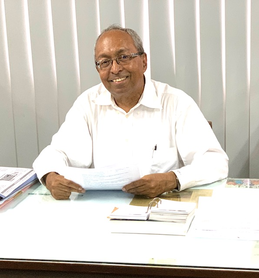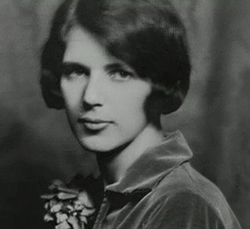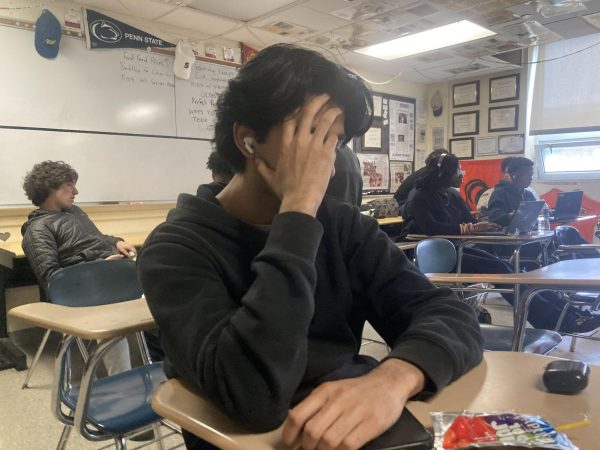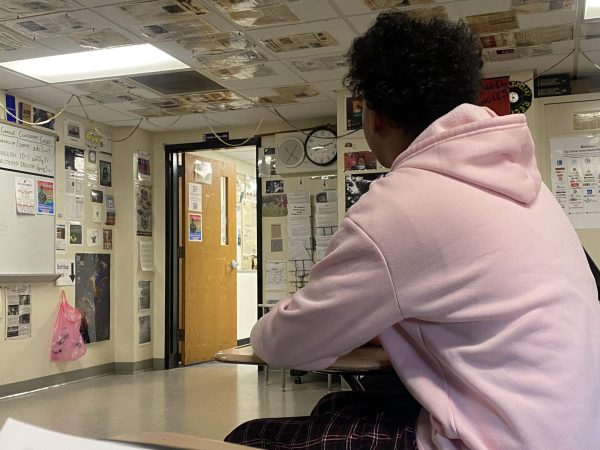SHS and its Diversity
January 10, 2017
Diversity is a major factor in the Stamford community, especially at Stamford High School. There are about 1,900 students and 32 languages spoken at SHS, showing the variety of cultures and backgrounds of the students.
Here are a couple of their stories:
Jose Herrada, Senior
It started when Herrada’s parents came to the United States to get a feel for it. They knew that they would struggle, so they made him stay in Peru. For a year, Herrada was on his own until his grandmother took him in. He stayed with his grandparents for a while and eventually his grandfather applied for a visa for Herrada and Herrada’s grandmother. They arrived in Connecticut, where most of his family already lived, and once again he stayed with his grandmother. Soon after, his parents learned he had arrived and they started visiting him, later moving in together as a family.
Applying for citizenship was an easy task for Herrada and his family. He didn’t know English, but since he was still young he was able to learn easily. In addition, Herrada also says he didn’t have any trouble transitioning into a different environment. He made friends easily, and did (and still does) well in school. The best thing for him was that at such a young age, he didn’t have to worry about any of the processes he went through to come to the U.S., and he says he “was completely OK with everything.”
Even though he lives in Stamford, Herrada visits Peru every year in the summer to see his grandfather and friends. He keeps in touch with them through WhatsApp, a common app used to contact people outside of the U.S. He says he wouldn’t change any of what he’s been through and enjoys his life.
Yuliya Klymyk, Junior
Klymyk is originally from Ukraine. She says her grandmother tricked her into coming to the U.S. by saying they were “taking a trip to a village in Ukraine” and getting her on the plane. At 8 years old, she came to America by herself. Her journey was terrifying due to a storm during her flight. When she arrived at the airport, her mother and her mother’s boyfriend were waiting for her. Klymyk started crying at the sight of her mom, whom she had not seen for two years. She was glad about coming to America despite her journey.
When Klymyk first arrived, she didn’t know how to speak English, however she soon learned in simple ways. By listening to people talk English and watching cartoons, she got the hang of it.
In the end, Klymyk doesn’t regret coming to America. Referencing the film We Are the Millers, Klymyk says “no regrats.” She wouldn’t change anything that happened since the day she came to America. She says coming from a different country changed her perspective on life.In Ukraine, people work so hard to get so little, but when you’re in the U.S., you can work your hardest and get the most of it. It’s a lot easier, and you have more opportunities.
Bermy Boursiquot, Junior
Born in Haiti, Boursiquot came to the U.S. in 2012. Being on the plane for the first time seemed “crazy” to him, however he wasn’t alone; he came with his mother and sister.
When Boursiquot came to Connecticut, most of his family was already here, so his mother, sister and him weren’t alone, but adjusting to the U.S. wasn’t that easy for him. Even though he made friends easily, he only knew a bit of English. Nonetheless, he learned through a language program that Scofield Middle School provided. School wasn’t hard for him, however the language barrier could make it confusing. Even though English is easier for Boursiquot now, he still learns something new every day.
Boursiquot believes that the opportunities are better here in America than in Haiti. He feels that in Haiti people were “killing each other” for any reason, whether it be money, property or anything else. It was not safe for him, which is one of the reasons why his mom brought the family to the U.S. Soon after Boursiquot left Haiti, he learned that his cousin, who was the same age as him, had been killed in such a conflict.
When I asked Boursiquot if he would change anything, he said he would change just one thing: his attitude in coming. He wishes he didn’t misbehave or act out, and offered some advice to newly arrived immigrants. “Don’t disrespect your parents, don’t act out in school and be yourself,” Boursiquot said. Also, coming from a different country changed his perspective on certain things. When he was Haiti, he never wanted to be in school. Boursiquot had bad grades and would rather think about girls, but now he believes he is better off and wants to go to college.
Mr. Isaac Odoom, Math teacher
Born and raised in Ghana, West Africa, Odoom came to the U.S. at the age of 44 years, partly because of economic reasons and partly for adventure. That is not to say that he wasn’t doing well economically, but he was hoping to improve his financial status and create opportunities for his children’s future. Odoom had all his elementary and high school education in Ghana and went on to graduate with a Bachelor of Science degree in engineering from one of the prestigious universities in Ghana – Kwame Nkrumah University of Science and Technology. He later relocated to Gambia, also in West Africa, where he taught mathematics for several years before travelling to the U.S.
His wife and children had previously visited the U.S. on vacation. At some point in time, the economy of most West African countries, including Gambia and Ghana, were somehow deteriorating, so Odoom made the decision to travel to America to seek greener pastures. It wasn’t an easy decision, especially because he was leaving his family behind and didn’t know what to expect. His flight from Gambia to the U.S. was smooth for him
In terms of language, it wasn’t hard for Odoom to transition to the U.S. because Ghana was a former British colony and the official language in schools and offices is English. He understood and spoke English well before coming into America, the only difference being his accent and intonation.
When Odoom arrived in America, he was prepared to expect the unexpected. It was very difficult at one period that he, in fact, wanted to go back to Ghana. Whatever credentials he held didn’t matter. No one wanted to see certificates or diplomas from an African country. He picked up several odd jobs in The Bronx and Manhattan, some of them requiring standing for eight hours or more. Still, he didn’t give up. Instead, Odoom eventually ended up pursuing a master’s degree in education – secondary mathematics at University of Bridgeport (UB).
Life wasn’t easy at all for Odoom. Attending classes while also having to work to pay his bills was one of the toughest times in his life. He missed his children and was worried about their future. Those thoughts pushed him to stay focused, work harder and complete his studies at UB. His toils paid off when he got a job here in SHS, where he has been teaching mathematics for the past 13 years. He brought his children to America and all three graduated from Stamford High School. His two daughters have graduated from the University of Connecticut in Storrs and are working. The youngest, a boy, is a junior in UConn, Storrs.
Odoom’s advice to immigrants, especially the young ones, is for them to set goals for themselves and work hard to achieve them. Education is the key to their success. Every young immigrant in America must strive hard to get some decent education and nothing must stop them from achieving this goal, no matter the limitations or insufficiencies.
Odoom advises to not worry about how others identify you. Stay focused on your dreams and don’t go astray. You shouldn’t let anyone intimidate you, especially your homegrown peers. Speak freely and don’t worry about the way you sound. Accept constructive criticism, learn to improve your situation and reach for the ultimate goal.













